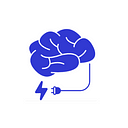Fruit-fly study sheds light on why vibrations help rock baby to sleep
Parents around the world know that gentle vibrations can greatly help rock baby to sleep, quickly and effectively.
The vibrations of a car have a similar effect. In 2017, car manufacturer Ford even designed a prototype crib that simulates these vibrations to help babies fall asleep at home.
Several experimental studies have confirmed that rocking promotes sleep in infants, adult humans, and mice.
But despite the universal popularity of this technique, scientists know little about the reasons behind it. And that prompted a team of researchers at Philadelphia’s Thomas Jefferson University to investigate further by examining the sleep patterns of … fruit flies.
Their new study ( PDF) on this topic appeared on December 1 in the journal Cell Reports.
Vibrations will rock baby to sleep, just like they will with fruit flies
As lead author Kyunghee Koh explains, the way fruit flies sleep is surprisingly similar to the way people sleep. And her new study shows that vibrations put fruit flies to sleep, just like they do with human babies.
The flies’ sleep duration is longer when they are “rocked,” and intrusive lights are less likely to wake them up. Vibrations also make the fruit flies sleep better — they are more alert afterwards, and behave as if they had slept longer than they actually had. This in turn lets them function better, even when they have had less sleep.
But vibrations did not influence the sleep of all fruit flies equally. The genetic background of the individual fly also plays a role in how effective the vibrations are. And different flies also responded differently to the amplitude and frequency of the vibrations.
Inducing habituation
The vibration-driven sleep increases the flies’ activities levels at first. But over time, the flies grow accustomed to the sensation, and the effectiveness of the vibrations begins to increase.
The researchers refer to this process as a form of “habituation.” The flies come to understand that the vibrations are not dangerous, and their alertness reflex subsides over time.
Koh also noted that the vibrations do not work on flies with high dopamine levels. These flies remain in a heightened state of alert, and are thus unaffected by the soporific effects of the vibrations.
But what about baby?
Does the same effect apply to human babies? The researchers don’t yet know enough to answer that question. But lead author Koh said future studies into fruit fly behavior will help them learn more about babies.
Next, they want to learn more about why the vibrations seem to make the fruit flies fall asleep, by studying the specific brain mechanisms involved. They also will look into whether similar effects can be obtained by visual or olfactory stimulation in flies. And maybe down the road, in babies too.
Study: “Sleep Induction by Mechanosensory Stimulation in Drosophila” ( PDF)
Authors: Arzu Öztürk-Çolak, Sho Inami, Joseph R. Buchler, Patrick D. McClanahan, Andri Cruz, Christopher Fang-Yen, and Kyunghee Koh
Published in: Cell Reports
Publication date: December 1, 2020
DOI: https://doi.org/10.1016/j.celrep.2020.108462
Photo: by Virvoreanu Laurentiu via Pixabay
For a weekly summary of the latest psychology news, subscribe to our Psych News Weekly newsletter.
Originally published at https://www.psychnewsdaily.com on December 2, 2020.
